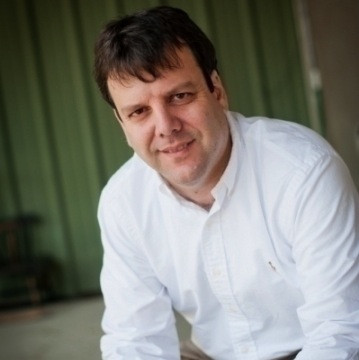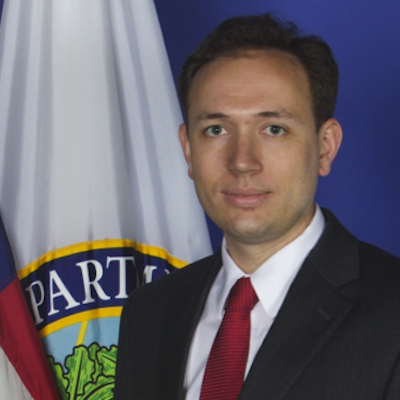Rob Horowitz: Millennials Coming of Age
Tuesday, March 18, 2014
Rob Horowitz is hopeful that Millennials' contributions to renewing the American Dream will be consequential and overwhelmingly positive.
The same is nearly certain to be the case for today’s young adults, members of the 77 million strong Millennial generation—a generational cohort of Baby Boomer proportions. The impact of this generation has already been felt in the last two Presidential elections as young people voted in much larger numbers total than previous generations and in much higher percentages for the Democratic candidate, serving as a big slice of the winning difference for Barack Obama. Now, that the oldest members of this generation are in their early 30’s and the overwhelming majority of Millennials are at least of voting age, their influence is only going to increase. An in-depth report on Millennials as compared to other generations—released by the Pew Research Center and based on recent polling—provides at least some directional guidance for how this growing influence may play out.
Millennials by the numbers
This poll confirms that despite the tough economic hardships many Millennials have experienced due to entering the workforce during the Great Recession, they remain strongly Democratic in voting preference and more liberal than previous generations. As the Pew report states, “Over the past 10 years Millennials have remained the most liberal and least conservative of the four generations, and the only generation in which liberals are not significantly outnumbered by conservatives.” Further, more than half of Millenials support a bigger government providing more services, while less than 4-in-10 favor a smaller government providing fewer services. They are the only generation which gives a bigger government majority support.
GET THE LATEST BREAKING NEWS HERE -- SIGN UP FOR GOLOCAL FREE DAILY EBLASTThese findings—consistent over time—bode well for Democrats. Still, there is room for Republicans to make inroads as half of Millennials identify as independents and only 31% say there is a great deal of difference between the political parties. This is a much lower percentage seeing big differences between the parties than members of Gen X, Boomers or the Silent generation. Of course, it is possible that Millennials’ political views will shift over time: although if past history is a guide, while there are certainly many cases of opinions changing on specific issues, for most people their over-all political outlook remains relatively fixed.
More broadly, Millennials are in the words of the Pew Report “detached from institutions” –or at least more detached than previous generations. For example, nearly 3-in-10 indicate, “they are not affiliated with any religion, a much higher percentage than previous generations. And only 26% of adult Millennials are married—a much lower percentage than previous generations at similar points in the lifecycle.
The first generation to grow up with the new online technology, Millennials are the most socially networked, with more than 8-in-10 on Facebook and a median friend count of 250, according to Pew. They are the driving force behind the growing importance of social media in election and issue campaigns. Generally speaking, Millennials are distrustful of big institutions and skeptical of charismatic leaders, preferring the ‘wisdom of crowds.’
Optimistic about the future
Still, Millennials remain optimistic about our nation’s future and their personal economic futures—more optimistic than the older generations. As Millennials age, form more lasting attachments and breathe new life into old institutions, shaping them to be more in line with their values and communications style as well as inventing institutions of their own, their full impact will be felt. Once more members of this most educated, most diverse, outsized and truly community-minded generation find their footing, I am convinced that their contributions to renewing the American Dream and tackling the big challenges ahead will be consequential and overwhelmingly positive. Or at least I sure hope so—our future depends on it.
Rob Horowitz is a strategic and communications consultant who provides general consulting, public relations, direct mail services and polling for national and state issue organizations, various non-profits and elected officials and candidates. He is an Adjunct Professor of Political Science at the University of Rhode Island.
Related Slideshow: RI Candidates with the Most Social Media Reach
Related Articles
- Rob Horowitz: A College Degree Is More Important than Ever
- Rob Horowitz: Climate Change On the Table… Finally!
- Rob Horowitz: Imagine Democracy, Powered Digitally
- Rob Horowitz: New Media Trends Accelerate
- Rob Horowitz: RI’s Congressional Delegation—Afraid of the Elderly
- Rob Horowitz: State of the Union: Obama’s Chance to Set the Agenda
- Rob Horowitz: WA Bridge Collapse A Wake-Up Call For Rhode Island
- Rob Horowitz: A Teaching Lesson at Brown
- Rob Horowitz: Comprehensive Immigration Reform Is Back
- Rob Horowitz: Immigration Reform Moves Forward
- Rob Horowitz: Newtown- One Year Later
- Rob Horowitz: RI’s Minimum Wage Boost Good News For Families
- Rob Horowitz: States Stepping Up On Climate Change
- Rob Horowitz: At Last: A National Budget Agreement
- Rob Horowitz: Congress Should Keep A Lid On Student Debt
- Rob Horowitz: Important Climate Change Milestone Exceeded
- Rob Horowitz: Obama Leads National Conversation on Trayvon Martin
- Rob Horowitz: Rand Paul: One of the Early Republican Frontrunners
- Rob Horowitz: Supreme Court Fuels National Push for Gay Marriage
- Rob Horowitz: Brewer Veto Cripples Effort to Roll Back Gay Rights
- Rob Horowitz: Finally, Some Common-Sense Drug Sentencing
- Rob Horowitz: It’s Time to End the Cuban Trade Embargo
- Rob Horowitz: Obama Moves into High Gear on Climate Change
- Rob Horowitz: Republican Orthodoxy on Marriage Equality Cracking
- Rob Horowitz: The Ultimate City: Bohemians, Gays & Jobs
- Rob Horowitz: Campaign To Strangle Obamacare In Its Crib Will Fail
- Rob Horowitz: Food Stamps Are the Wrong Political Football
- Rob Horowitz: Kennedy: A Vision of What We Can Do Together
- Rob Horowitz: Obama Steps Up on Climate Change
- Rob Horowitz: Rhode Island’s Self-Esteem Campaign Needs More Money
- Rob Horowitz: The War On Poverty, 50 Years Later
- Rob Horowitz: Chafee Takes Himself Out of the Game Too Soon
- Rob Horowitz: Government Shutdown A Disaster for House Republicans
- Rob Horowitz: King, Obama + Citizen Activism
- Rob Horowitz: Obamacare—Hold the Shovels
- Rob Horowitz: Rutgers President Ducks Responsibility On Rice
- Rob Horowitz: Time To Find Common Ground, Congress
- Rob Horowitz: Chris Christie’s Big Moment Is Coming Soon
- Rob Horowitz: House Republicans Hold Debt Ceiling Hostage—Again
- Rob Horowitz: Let’s Get Serious About Prescription Drug Abuse
- Rob Horowitz: Progress Possible On Immigration Reform
- Rob Horowitz: Signs of Life for Grand Bargain
- Rob Horowitz: Tough Fight Coming On Immigration Reform
- Rob Horowitz: 5 More Reasons for New Year’s Optimism
- Rob Horowitz: Climate Change Adaptation Moves on to the Public Agenda
- Rob Horowitz: How The Boston Marathon Tragedy Brings Us Together
- Rob Horowitz: Let’s Celebrate RI’s Adoption of Marriage Equality
- Rob Horowitz: Progress on Comprehensive Immigration Reform
- Rob Horowitz: Speaker Boehner Joins the Shutdown and Default Caucus
- Rob Horowitz: Trust in Media Near an All Time Low























